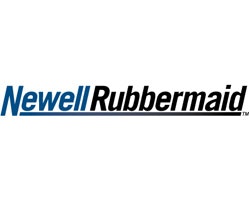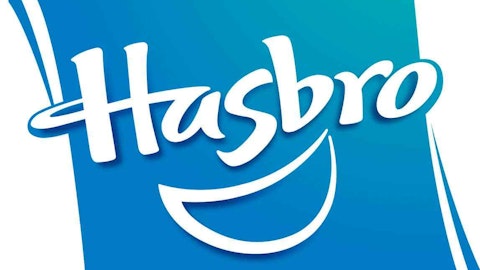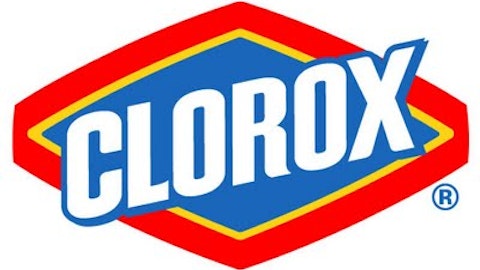Speaking at the Barclays Capital Back-to-School Consumer Conference on Wednesday, consumer and commercial products maker Newell Rubbermaid Inc. (NYSE:NWL) CEO Michael Polk told investors his company is off to a “solid” start in 2013 — and that he has every confidence of hitting the company’s earnings guidance for the year.
If only that were good enough.

How high should Rubbermaid bounce?
As a medium-sized “conglomerate” company, with its hands in many pots, finding perfectly analogous companies to which to compare Rubbermaid to see if it’s “priced right” is no simple task — but there does appear to be a valuation disconnect here.
Avery Dennison Corp (NYSE:AVY), which competes with Rubbermaid in some business products categories, and The Clorox Company (NYSE:CLX) and The Procter & Gamble Company (NYSE:PG), which compete in cleaning products, all look a bit cheaper than Rubbermaid at trailing P/E ratios of 18.7, 19.4, and 20.1, respectively. Mattel, Inc. (NASDAQ:MAT), whose children-focused wares arguably rival Rubbermaid’s Graco, Aprica, and Teutonia brands, is even cheaper than these other Rubbermaid competitors, sporting a trailing P/E of 18.6.
As I say, while the case is hardly open and shut, Rubbermaid does look expensive relative to the competition.
And judged on its own merits, Rubbermaid looks even more overpriced. Based on trailing earnings, Rubbermaid shares currently carry a valuation of 21 times earnings. Valued on the company’s likely earnings for the full year, that P/E drops to 18.7. Valued on Polk’s suggested “adjusted” earnings, it could drop as low as 14.6.
Problem is, with a 9.4% predicted annual earnings growth rate and a 2.4% dividend yield, even the most optimistic interpretation of Rubbermaid — the 14.6 P/E based on earnings with no charges deducted from them — suggests these shares are already overvalued.
Factor in Rubbermaid’s sizable $2 billion debt load and the company’s enterprise value bounces back up to 17.7. Value the company on its likely free cash flow — which Rubbermaid says will approximate $425 million this year — and the enterprise value-to-free cash flow ratio on the company begins to approach 22. Either way, these valuations look too large for Rubbermaid to support with a sub-10% profits growth rate.
Long story short, while I’m always leery of shorting stocks, I’d be very cautious about going long on Rubbermaid shares.
The article Rubbermaid Stock: Expensive or Way, Way Too Expensive? originally appeared on Fool.com.
Fool contributor Rich Smith has no position in any stocks mentioned. The Motley Fool recommends Mattel and Procter & Gamble.
Copyright © 1995 – 2013 The Motley Fool, LLC. All rights reserved. The Motley Fool has a disclosure policy.




